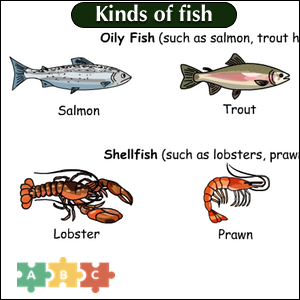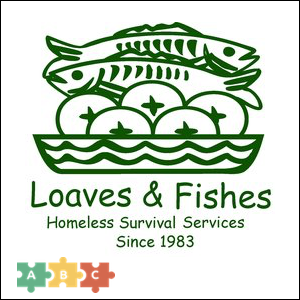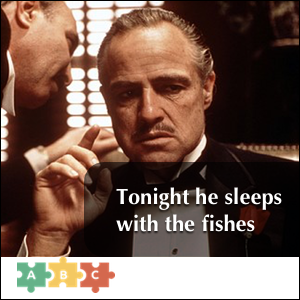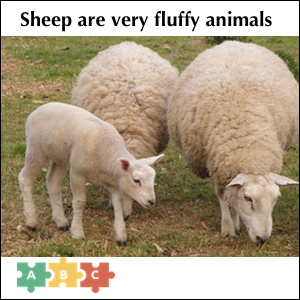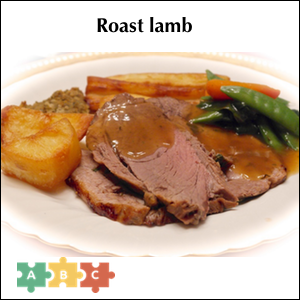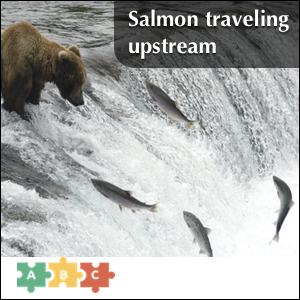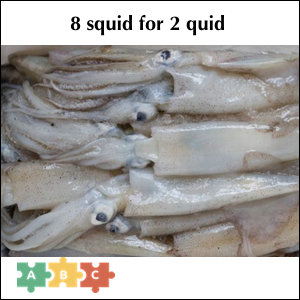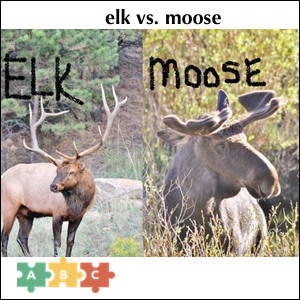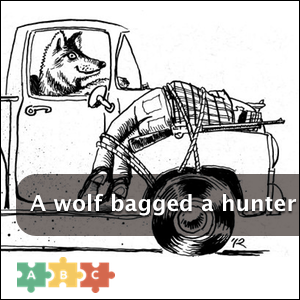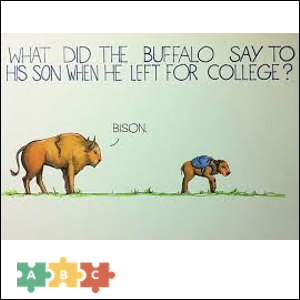There are many creatures that live in the water. Some taste good, and some do not. Some have scales, and others have hard shells.
Fish are one group of these animals. Some English speakers aren’t sure how to refer to more than one fish. Should you use fish, or fishes? Read on to find out.
What is the Difference Between Fish and Fishes?
In this post, I will explore fish vs. fishes. I will use each word in a sentence to illustrate its proper use. Plus, I will show you a helpful trick to use when deciding which of these words to use in your own writing.
When to Use Fish

As a noun, it refers to a group of aquatic vertebrate animals that use gills to breathe. Fish can be found in most bodies of water. Some are eaten, and some are kept as pets.
Fish can function as both a singular and plural noun. A popular example would be the well-known children’s book One Fish Two Fish Red Fish Blue Fish. It also refers to fish as a food item, without regard to the amount of fish being consumed.
See the sentences below for examples of fish used as a noun.
- Adelle saw a group of fish swimming in the pond.
- Robert has a pet fish named Claire.
- Let’s eat fish for dinner.
- Tens of thousands of dead fish have closed Montana’s Yellowstone River and stirred new worries Monday about lasting impacts to the region’s lucrative outdoors industry. –The Washington Post
As a plural noun, fish is actually the newer term, but, according to the OED, it has been in use since at least 1300, and is now the more common plural form.
As a verb, to fish is to capture aquatic animals through any of several methods. Fishing is a popular pastime, an important industry, and in some parts of the world, a way of life.
Here are some examples,
- Today, I will go to the river and fish for trout.
- Some say that rainy days are the best days to fish.
When to Use Fishes

As a noun, it is an alternative plural of fish. Although fishes is the older of the two plural forms, its use today is rare and idiomatic, as in the following phrases:
- Jesus fed the crowd with five loaves and two fishes.
- “Luca Brasi sleeps with the fishes,” Sal said.
It is also sometimes used when referring to more than one species of fish.
For example,
- Perch and bass are two fishes hunted for sport in the American Midwest.
- Fortunately, perceptions of these ancient fishes are slowly changing, as new research and renewed interest from anglers are garnering a more positive image of these misunderstood fishes. –National Geographic
As a verb, it is the third-person present tense of to fish, as in the following sentence:
- Jermaine fishes for salmon, and shares it with his family.
Trick to Remember the Difference

Using fish as a verb is fairly straightforward, but the same cannot be said of its use as a plural noun.
Unless you are using a specific idiom like those mentioned above, choose fish for most contexts, singular or plural. Fish is the most widely used plural form of the word in English today.
You can remember which word to use by reminding yourself that “fish is salty.” You would not use the phrase “fishes is salty,” so you should not choose fishes for general use.
Summary
Is it fish or fishes? Fish and fishes can both be used as either a verb or a plural noun. To fish is to capture aquatic animals, and as plural nouns, fish and fishes refer to more than one such animal.
You can use the phrase “fish is good” to remind yourself that fish should be used in most situations. If you still have trouble remembering when to use fishes or fish, you can check this article for extra help.
Contents
- 1 What is the Difference Between Fish and Fishes?
- 2 When to Use Fish
- 3 When to Use Fishes
- 4 Trick to Remember the Difference
- 5 Summary
поделиться знаниями или
запомнить страничку
- Все категории
-
экономические
43,633 -
гуманитарные
33,652 -
юридические
17,917 -
школьный раздел
611,709 -
разное
16,898
Популярное на сайте:
Как быстро выучить стихотворение наизусть? Запоминание стихов является стандартным заданием во многих школах.
Как научится читать по диагонали? Скорость чтения зависит от скорости восприятия каждого отдельного слова в тексте.
Как быстро и эффективно исправить почерк? Люди часто предполагают, что каллиграфия и почерк являются синонимами, но это не так.
Как научится говорить грамотно и правильно? Общение на хорошем, уверенном и естественном русском языке является достижимой целью.
Which fish is this story about?
Choose the word forom.

Вопрос Which fish is this story about?, расположенный на этой странице сайта, относится к
категории Английский язык и соответствует программе для 1 — 4 классов. Если
ответ не удовлетворяет в полной мере, найдите с помощью автоматического поиска
похожие вопросы, из этой же категории, или сформулируйте вопрос по-своему.
Для этого ключевые фразы введите в строку поиска, нажав на кнопку,
расположенную вверху страницы. Воспользуйтесь также подсказками посетителей,
оставившими комментарии под вопросом.
- Top Definitions
- Quiz
- Related Content
- About This Word
- Examples
- British
- Scientific
- Idioms And Phrases
This shows grade level based on the word’s complexity.
This shows grade level based on the word’s complexity.
noun, plural (especially collectively) fish, (especially referring to two or more kinds or species) fish·es.
any of various cold-blooded, aquatic vertebrates, having gills, commonly fins, and typically an elongated body covered with scales.
(loosely) any of various aquatic animals.
the flesh of fishes used as food.
Fishes, Astronomy, Astrology. the constellation or sign of Pisces.
Informal. a person: an odd fish; a poor fish.
a long strip of wood, iron, etc., used to strengthen a mast, joint, etc.
Cards Slang. an incompetent player whose incompetence can be exploited.
Slang. a dollar: He sold the car for 500 fish.
Slang.
- a new prison inmate.
- a high school or college freshman; frosh.
verb (used with object)
to catch or attempt to catch (any species of fish or the like).
to try to catch fish in (a stream, lake, etc.): Let’s fish the creek.
to draw, as by fishing (often followed by up or out): He fished a coin out of his pocket for the boy.
to search through, as by fishing.
Nautical.
- to secure (an anchor) by raising the flukes.
- to reinforce (a mast or other spar) by fastening a spar, batten, metal bar, or the like, lengthwise over a weak place.
verb (used without object)
to catch or attempt to catch fish, as by angling or drawing a net.
to search carefully: He fished through all his pockets but his wallet was gone.
to seek to obtain something indirectly or by artifice: to fish for compliments; to fish for information.
to search for or attempt to catch onto something under water, in mud, etc., by the use of a dredge, rake, hook, or the like.
to attempt to recover detached tools or other loose objects from an oil or gas well.
Verb Phrases
fish out, to deplete (a lake, stream, etc.) of fish by fishing.
QUIZ
CAN YOU ANSWER THESE COMMON GRAMMAR DEBATES?
There are grammar debates that never die; and the ones highlighted in the questions in this quiz are sure to rile everyone up once again. Do you know how to answer the questions that cause some of the greatest grammar debates?
Which sentence is correct?
Idioms about fish
drink like a fish, to drink alcoholic beverages to excess: Nobody invites him out because he drinks like a fish.
fish in troubled waters, to take advantage of troubled or uncertain conditions for personal profit.
fish or cut bait, to choose a definite course of action, especially to decide whether to participate in or retreat from an activity.
fish out of water, a person out of their proper or accustomed environment: He felt like a fish out of water in an academic atmosphere.
neither fish nor fowl, having no specific character or conviction; neither one nor the other.
other fish to fry, other matters requiring attention: When it was time to act, they had other fish to fry.
Origin of fish
First recorded before 900; (noun) Middle English fis(c)h, fyssh, Old English fisc; cognate with Dutch vis, German Fisch, Old Norse fiskr,Gothic fisks; akin to Latin piscis, Irish iasc; (verb) Middle English fishen, Old English fiscian, cognate with Dutch visschen, German fischen, Old Norse fiska, Gothic fiskôn
OTHER WORDS FROM fish
fish·less, adjectivefish·like, adjectiveout·fish, verb (used with object)un·fished, adjective
WORDS THAT MAY BE CONFUSED WITH fish
fiche, fish
Words nearby fish
fiscal year, Fischer, Fischer-Dieskau, Fischer-Tropsch process, Fischer von Erlach, fish, fishable, fish and brewis, fish and chips, fish-and-chip shop, fish-bellied
Other definitions for fish (2 of 2)
noun
Hamilton, 1808–93, U.S. statesman: secretary of state 1869–77.
Dictionary.com Unabridged
Based on the Random House Unabridged Dictionary, © Random House, Inc. 2023
ABOUT THIS WORD
What else does fish mean?
Fish, appearing especially in the phrase fresh fish, is prison slang for new, first-time inmates, usually considered naive and vulnerable.
Fish, often appearing in the form of fishy or the phrase serving fish, is also slang in drag culture for a very feminine drag queen.
Content warning: this article contains references to sexual and sexist content.
Where does fish come from?
Fish has been recorded as prison slang for new inmates since the 1870s. The term apparently likens new prisoners to fish fresh out of the water. One theory about the slang’s origin claims that inmates were issued uniforms with their inmate numbers stamped with an ink that smelled fishy when wet.
Fish for new inmates shouldn’t be confused with another prison slang term, fishing. This refers to using a string to pass contraband items between cells in a manner similar to casting a fishing line.
Security update. Spot check by prison security staff found this. Did you spot it? Blue in color cable placed over the wall. Drops down into inmate holding area and being used as a ‘fishing line’ to move contraband. Corrective action taken. #safeprisons pic.twitter.com/islbBC3qfE
— Seychelles Prison Service (@SeychellePrison) October 29, 2018
Fish is also slang in the drag community. Alluding to popular beliefs about female genitalia, fish, here, refers to a drag queen who closely resembles a woman. Referring to a drag queen as fishy, or saying they are serving fish, is considered complimentary within the drag community, but keep in mind that such a description for women and their bodies is generally extremely offensive.
How is fish used in real life?
Both prisoners and prison staff may use fish to belittle new, first-time inmates. It has appeared in popular media, including the 1994 film The Shawshank Redemption, as well as in a 2005 episode of the TV show Prison Break, which contains the fan favorite line “Welcome to Prisneyland, fish.”
Once again, in drag culture, fish/fishy/serving fish are taken as compliments, but, elsewhere, likening female genitalia to a fish is offensive.
More examples of fish:
“Walking a dog down the streets of LA is like walking the new fish down a crowded row of prison cells in a movie.”
—@shelbyfero, October 2018
Note
This content is not meant to be a formal definition of this term. Rather, it is an informal summary that seeks to provide supplemental information and context important to know or keep in mind about the term’s history, meaning, and usage.
Words related to fish
angle, bait, bob, cast, chum, extract, extricate, find, net, produce, seine, trawl, troll, pull out
How to use fish in a sentence
-
On March 20, 2019, fish caught in Ohio’s Cuyahoga River were declared safe to eat by federal environmental regulators.
-
The new work provides important context for data being collected on fish stocks.
-
Sims and Berni wonder how these ideas might be explored in vertebrates like mice and zebra fish.
-
For example, fishes who start living and evolving in unlit caves often lose their eyes, because the costs of developing them outweigh their advantages.
-
This makes the online world an exceptionally volatile environment, where big fishes swallow the small ones.
-
When Chérif got out of prison, he worked at the fish counter of a supermarket.
-
“The government just wanted to catch the big fish [in the Juarez cartel] and they ignored everything in between,” Lozoya said.
-
Kocurek documented the scene with notes and diagrams, and called the U.S. Fish and Wildlife Service.
-
A U.S. Fish and Wildlife officer corroborated another account.
-
A Fish and Wildlife special agent collected the bodies of two birds at the site, a redhead duck and a mourning dove.
-
He must be The saltest fish that swims the sea.And, oh!He has a secret woe!
-
He looked up from his fish and replied, somewhat cuttingly, «By contesting a borough and getting elected.»
-
Smoking, the angry and fuming king protests, had made our manners as rude as those of the fish-wives of Dieppe.
-
But what if I catch the fish by using a hired boat and a hired net, or by buying worms as bait from some one who has dug them?
-
The Taube has been bothering us again, but wound up its manœuvres very decently by killing some fish for our dinner.
British Dictionary definitions for fish (1 of 2)
noun plural fish or fishes
- any of a large group of cold-blooded aquatic vertebrates having jaws, gills, and usually fins and a skin covered in scales: includes the sharks and rays (class Chondrichthyes : cartilaginous fishes) and the teleosts, lungfish, etc (class Osteichthyes : bony fishes)
- (in combination)fishpond Related adjectives: ichthyic, ichthyoid, piscine
any of various similar but jawless vertebrates, such as the hagfish and lamprey
(not in technical use) any of various aquatic invertebrates, such as the cuttlefish, jellyfish, and crayfish
the flesh of fish used as food
informal a person of little emotion or intelligencea poor fish
a fine kettle of fish an awkward situation; mess
drink like a fish to drink (esp alcohol) to excess
have other fish to fry to have other activities to do, esp more important ones
like a fish out of water out of one’s usual place
make fish of one and flesh of another Irish to discriminate unfairly between people
neither fish, flesh, nor fowl neither this nor that
verb
(intr) to attempt to catch fish, as with a line and hook or with nets, traps, etc
(tr) to fish in (a particular area of water)
to search (a body of water) for something or to search for something, esp in a body of water
(intr foll by for) to seek something indirectlyto fish for compliments
Derived forms of fish
fishable, adjectivefishlike, adjective
Word Origin for fish
Old English fisc; related to Old Norse fiskr, Gothic fiscs, Russian piskar, Latin piscis
British Dictionary definitions for fish (2 of 2)
n acronym for
fluorescence in situ hybridization, a technique for detecting and locating gene mutations and chromosome abnormalities
Collins English Dictionary — Complete & Unabridged 2012 Digital Edition
© William Collins Sons & Co. Ltd. 1979, 1986 © HarperCollins
Publishers 1998, 2000, 2003, 2005, 2006, 2007, 2009, 2012
Scientific definitions for fish
Plural fish fishes
Any of numerous cold-blooded vertebrate animals that live in water. Fish have gills for obtaining oxygen, a lateral line for sensing pressure changes in the water, and a vertical tail. Most fish are covered with scales and have limbs in the form of fins. Fish were once classified together as a single group, but are now known to compose numerous evolutionarily distinct classes, including the bony fish, cartilaginous fish, jawless fish, lobe-finned fish, and placoderms.
The American Heritage® Science Dictionary
Copyright © 2011. Published by Houghton Mifflin Harcourt Publishing Company. All rights reserved.
Other Idioms and Phrases with fish
In addition to the idioms beginning with fish
- fish for
- fishing expedition
- fish in troubled waters
- fish or cut bait
- fish out
- fish out of water, a
- fish story
also see:
- big fish in a small pond
- cold fish
- drink like a fish
- goldfish bowl
- kettle of fish
- like shooting fish in a barrel
- neither fish nor fowl
- not the only fish in the sea
- other fish to fry
- smell fishy
The American Heritage® Idioms Dictionary
Copyright © 2002, 2001, 1995 by Houghton Mifflin Harcourt Publishing Company. Published by Houghton Mifflin Harcourt Publishing Company.
Question
Обновлено на
14 апр. 2022
-
Чешский
-
Английский (американский вариант)
-
Французский
-
Шведский
Вопрос про Английский (британский вариант)

When you «disagree» with an answer
The owner of it will not be notified.
Only the user who asked this question will see who disagreed with this answer.
-
Английский (британский вариант)
4 and 5 are correct. Well done with 5 👍
-
Английский (британский вариант)
Even though ‘fish’ is uncountable, the words you use with fish determine the meaning.
There is a fish in the lake (just one individual animal)
There are fish in the lake (2 or more animals)
There are 2 kinds of fish in the lake.
There are many kinds of fish in the lake.
There are no fish in the lake.
[News] Эй, привет! Тот, кто учит язык!
Вы знаете как улучшить свои языковые навыки❓ Все, что вам нужно – это исправление вашего письма носителем языка!
С HiNative ваше письмо носители языка могут исправить бесплатно ✍️✨.
Зарегистрироваться
- Is it correct to say «Have a nice rest of the week!» at the end of an email?
- What exactly does the word «cunk» mean to a British person?
-
Which sentence is correct?
Please forward the email to whomever you think relevant.
OR
Please …
- You deserve & You deserved & You deserve it !which one is right?!
- «How was your holiday?» Or «How were your holidays?» Are both correct?
-
«Самое главное, что они меня поймут»
«Самое главное, чтобы они меня понимали»
Можно ли исполь… -
Пожалуйста, купи в магазине какой-нибудь/всякий гель для бритья
Вроде какой-нибдуь подойдет лучш…
-
Я увидел, как она с трудом несет/несла чемодан к выходу
Оба варианта правильны?
-
—> Актуарий
Actuary
Вы слышали об этой профессии?
Известнa ли эта профессия в России? -
Hi there.
How can I learn speaking russian? Is there any effectively informal learning way? I us…
-
«если я не СДАМ хорошо экзамен, я не смогу работать или учится в университете»
почему это не «ста… -
What is the appropriate sign?
У нас дружная семья
У нее добрый отец
Вот это его средняя сестра … -
«Самое главное, что они меня поймут»
«Самое главное, чтобы они меня понимали»
Можно ли исполь… -
Пожалуйста, купи в магазине какой-нибудь/всякий гель для бритья
Вроде какой-нибдуь подойдет лучш…
- Is there any irregular verbs in russain language Can someone write a lot of comman verbs those ar…
Previous question/ Next question
- Как сказать на Японский? どう言う
- テレワークをしている間、毎日欠かさず勤務用のアプリで出退勤の時間を記録しなければならない。でないと欠勤扱いにされる。そして記録を忘れないように、私は毎日午前9時と午後6時のアラームを設定している。
Что означает этот символ?
Символ показывает уровень знания интересующего вас языка и вашу подготовку. Выбирая ваш уровень знания языка, вы говорите пользователям как им нужно писать, чтобы вы могли их понять.
-
Мне трудно понимать даже короткие ответы на данном языке.
-
Могу задавать простые вопросы и понимаю простые ответы.
-
Могу формулировать все виды общих вопросов. Понимаю ответы средней длины и сложности.
-
Понимаю ответы любой длины и сложности.
Подпишитесь на Премиум и сможете воспроизводить аудио/видеоответы других пользователей.
Что такое «подарки»?
Show your appreciation in a way that likes and stamps can’t.
By sending a gift to someone, they will be more likely to answer your questions again!

If you post a question after sending a gift to someone, your question will be displayed in a special section on that person’s feed.

Устали искать? HiNative может помочь вам найти ответ, который вы ищете.
«Почему нельзя говорить fishes, а только fish»? (Марина)
Почему же нельзя? Если очень хочется, то можно! Правда, для этого пришлось бы пойти в зоологи, а точнее — в ихтиологи. Это такие специальные люди, которые знают практически всё, что только можно знать о рыбах.
Рыбоводы могут часами говорить about different types of fishes (о разных видах рыб). С научной точки зрения, естественно. Зоологи их изучают и лелеют.
А вот обычные люди в рыбах ценят, прежде всего, вкус.
Для потребителя рыба — это то, чем можно вкусно питаться. Ресурс.
А раз так, то слово «fish» — это просто название, ярлык на невидимом мешке, в который можно складывать разновидности ресурса. Причём идея того, что «мешок один» (единственное число) на практике оказывается важнее того, что внутри мешка много сортов ценного хабара (мн.ч.).
Поэтому в обычной жизни — fish and only fish.
- виды рыб = kinds of fish
- жирная рыба: лосось, форель = oily fish: salmon, trout
- моллюски (дословно «рыба с панцирем»): омар, креветка = shellfish: lobster, prawn / shrimp
Заметьте — в качестве полезного биоресурса англоговорящие воспринимают почти всех речных и морских гадов (при условии, конечно, что те съедобны).
Всех под одну гребёнку! Даже моллюсков. А что? Это водится в воде? В пищу пригодно? Значит — биомасса — fish. Ну ладно, ладно. Так и быть, признаем за моллюсками небольшое отличие. Пусть это будет «панцирная рыба», то есть shellfish. Всё равно съедим.
В обычной жизни есть только две ситуации, когда окружающие относятся к слову fishes с пониманием. Во-первых, это цитата из Библии. Отсылка к описанию чуда (про то, как Иисус накормил голодную толпу всего пятью хлебами и двумя рыбами). Здесь как раз важно показать картинку «двух рыбьих тушек», поэтому рыбы мыслятся отдельно друг от друга. Отсюда и окончание —es.
- хлеба и рыбы = loaves & fishes
- служба помощи бездомным с 1983 = homeless survival services since 1983
И последний случай, когда слово fishes вызовет правильные ассоциации, то есть вас поймут. Это отсылка к теме мафии. «Godfather» помните? (фильм «Крёстный отец»). Итальянские гангстеры в Нью-Йорке имели характерный такой говорок. Кстати, удобный способ отличать «своих» от «чужих» в тёмном переулке. Английский они коверкали безжалостно.
- Сегодня он будет спать с рыбами = Tonight he sleeps with the fishes.
- в бетонных сапогах = in cement boots
Впрочем, не всё так грустно.
Заглянув на страницу этой Витаминки, вы узнаете:
- о том, как англичане называют свою валюту неформально. Вот американцы называют доллары баксами, а британцы свои деньги как величают? И почему там тоже нет множественного числа?
- о том, что некоторый домашний скот называют по-разному в зависимости от возраста, и как это всё связано с борьбой между ед.ч и мн.ч.
- как сказать «охотники завалили трёх лосей»
- и ещё кое-что интересное.
Let us, as the French say, return to our sheep («Как говорят французы, вернёмся к нашим баранам»).
Одной рыбой сыт не будешь! Биоресурс должен быть разнообразным, иначе что это за жизнь?
Что ещё в англоязычной картине мире считается «самоходным мясом»? Например, те самые овцы и бараны:
- Овцы — это очень пушистые животные = Sheep are very fluffy animals.
- Где все наши овцы? Не беспокойся, они все спят = Where are all our sheep? Don’t worry, they are all asleep.
К молодым овцам (то есть ягнятам) предки современных англичан относились бережно, оставляя их на развод. В них усматривали отдельных особей, а не сплошную биомассу. Отсюда множественное число:
- Молодая овца зовётся ягнёнком = A young sheep is called a lamb. // Нажмите на это слово и послушайте произношение: последняя буква (b) не читается
- На пастбище четверо ягнят = There are four lambs in the pasture.
Правда, если уж ягнёнку — или даже 2–3 ягнятам — не повезло (скажем, крупный праздник, толпа голодных гостей!), то снова побеждает идея сплошной массы:
- Поужинали ягнятиной = We had lamb for dinner!
- Жаркое из ягнятины = roast lamb
Заметили? Артикль «а» тоже исчезает. Почему?
А за ненадобностью.
Частица «а» происходит от слова «ONE» и буквально означает «один» (одна такая штука из многих подобных, один такой предмет с характерным контуром). Как только бедное животное разобрали на мясо, узнаваемый силуэт пропал. А с ним — и частица «а».
Мясо взрослых овец (старше 1 года) называют mutton (баранина). Ничего не поделать! Такая уж судьба у этих пушистиков. Шкуру — на мутоновую шубу, остальное — на котлеты.
Кстати, в восточных англоговорящих странах (например, в Индии, Пакистане, Шри-Ланке) словом mutton обозначают ещё и козлятину. При этом козлёнок по-английски будет a kid (да-да! Именно так в США любят называть детей). Поэтому не спешите звонить санитарам, если вдруг услышите от знакомого:
- Люблю, знаешь ли, готовить (…) поострее, со специями! = I like to cook kid with a lot of spices!
Здесь kid — вовсе не ребёнок, как можно было бы подумать. А всего лишь «мясо козлёнка». Без артикля.
- Награда в 5000 долларов = A $5000 reward // В заголовках артикли можно опускать
- Малыш Билли = Billy the Kid (один из самых известных бандитов на Диком Западе)
- Живым или мёртвым = Dead or alive
Где ещё срабатывает потребительский взгляд на животных как на источник ценного ресурса?
Да везде, где:
- «овчинка стоит выделки» / «игра стоит свеч»
- есть плотный поток особей, сливающийся в одну сплошную массу.
И снова о рыбах.
На акул, например, предки англичан не охотились. По крайней мере, привычно и столетиями. Поэтому:
- Ух ты! Я только что поймал трёх разных акул за какие-то считанные минуты! Зашибись! = WOW i just caught 3 different sharks in a matter of about 5 minutes. Hell yes!
Делаем вывод: английский взгляд на мир классифицирует sharks как отдельные тушки. Просто объекты. Поэтому мн.ч.
А вот промысловые породы рыб — hell, no! («Ни фига!»). Сплошная биомасса:
- А мой батя за одно утро выловил трёх форелей, пять тунцов, четырёх лососей, 15 селёдок и даже двух рыб-лун = And my pops caught three trout, five tuna, four salmon, 15 herring and even two ocean sunfish in a single morning.
- Вот какой он могучий рыбак! = He is one mighty fisherman!
Заметили? Древнее слово ONE здесь стоит на месте, где мы ожидали увидеть его потомка — частицу «а». Архаизм добавляет фразе «солёности», «едкости».
- Лосось, прущий вверх по реке = Salmon traveling upstream
Та же идея — «сплошная масса» — относится и кальмарам:
- Кальмары сейчас дюже хороши! = Squid are in season!
- Восемь кальмаров за пару фунтов стерлингов = 8 squid for 2 quid
Кстати, вот ещё одно словечко, которое рифмуется с кальмарами и тоже мыслится как «масса» — quid. Это жаргонное название английской валюты, по стилю близко к «баксам». Считается, что это слово восходит к латинской фразе quid pro quo («кви про кво», то есть «что-то в обмен на что-то», услуга за услугу, «то за это»).
- С тебя фунт, приятель = That’ll be a quid, mate. // Британский слэнг
- Я дам тебе 20 фунтов = I’ll give you twenty quid!
- Подарочный сертификат на 5 фунтов = A five quid voucher
- Чтобы потратить на всё, что вашей душеньке угодно = To spend on whatever your heart desires
- На рынке местных продуктов по такому-то адресу = at foodshed in the market at such and such address
Идём дальше. Наконец-то мы добрались до крупной дичи! (game animals)
Вот мы говорим «дичь». Но никому не придёт в голову сказать «две дичи или три».
«Дичь» — это просто ярлык на невидимом мешке, куда мы складываем разные сорта промысловых диких животных. Удобный способ мыслить.
Точно так же думают и англичане. Для них естественно и нормально сказать:
- Меткий 15-летний стрелок умудрился убить двух оленей одним выстрелом = A 15-year-old sharpshooter managed to kill two deer with one bullet.
- «Мне очень хотелось добыть оленя», — сказал он. = «I really wanted a deer», said he.
Других зверей того же семейства английский язык складирует в аналогичный невидимый мешок («дичь она и есть дичь»). Множественного числа они, видимо, не заслуживают:
- Как правило, лоси не убегают (как олени вапити) при виде охотника = Typically, moose will not flee like elk at the sight of a hunter…
- … что облегчает охоту на них = which makes them easier to kill. // дословно: «что делает их проще, чтобы убить».
- Поэтому, если оно видит вас и не убегает, то это, скорее всего, лось. = So if it sees you and doesn’t run, it’s probably a moose.
На хищников предки англичан тоже охотились, но рассматривали их совсем иначе. Это уже не просто ресурс / биомасса, а трофей или враг. Каждая особь — на отдельном счету! Поэтому мн.ч.:
- Охотники завалили четырёх волков, трёх медведей и двух лисиц = The hunters bagged four wolves, three bears, and two foxes.
Или наоборот:
Давным-давно, когда диких свиней в Англии было больше, чем одомашненных, молодых называли pigs или piglets (то есть поросятами), а взрослых — swine.
Полная аналогия с ягнятами и овцами: дикий молодняк считался более нежным и ценным, поэтому заслуживал отдельного учёта, удостоился множественного числа.
- Сколько у нас осталось свиней = How many swine do we have left?
- Две хрюшки и три поросёнка = Two pigs and three piglets.
Сейчас, правда, это различие стёрлось, и в быту словом pigs называют любых свиней (а на блатном жаргоне — ещё и полицейских). У животноводов, так же как и рыбоводов, свой язык и свои тонкие различия. Но это уже на любителя.
Хорошо. Подведём итог.
- Если речь идёт об изучении кормовой живности с целью её эффективного разведения — множественное число вполне уместно (fishes / pigs). В случае с pigs это вообще норма.
- Если же в поле зрения дичь, особенно крупная («чтобы её добыть») — только единственное число!
Пример:
- Существует много разновидностей бизонов и буйволов = There’re many varieties of bison and buffalo.
- Что сказал буйвол, когда его сын поехал учиться в институт? = What did the buffalo say to his son when he left for college?
- Пока, сын! = Bye, son! (произносится так же как bison)
See you guys next time,
Yuri Zhdanov
Your friendly English expert
Pronunciation:
fish
•
Hear it!
Part of Speech: Verb, intransitive (no object nouns)
Meaning: 1. To try to catch fish. 2. To ask questions blindly in hopes that an answer to the questions will provide information that you want. 3. (Usually misspelled phish) To attempt to fraudulently acquire sensitive information, such as passwords and credit card details, by pretending to represent a familiar (financial) institution.
Notes: 
In Play: Every day I receive several e-mail messages putatively from E-Bay, PayPal, and various banks. They tell me that they are upgrading their security system and need my username and password, or that they have closed my account until I reset my username and password at their site. The message includes a link to what seems to be the website of the company in question (ebay.com, paypal.com, and others). However, if you run your cursor over the link, you will see in the status bar at the bottom of your e-mail browser a different URL. If the link in an e-mail message is different from the one that appears at the bottom of your browser, don’t click it, but send the e-mail message to the trash can (or bin).
Word History: The original Proto-Indo-European root of today’s good if ordinary word was pisk- «fish», which turns up pretty much unchanged in Latin piscis «fish», whose plural is pisces. Since [p] regularly became [f] in Germanic languages, fisk in Swedish, Fisch in German, and fish in English come as no surprise. Porpoise, however, might come as a surprise. This word we borrowed from French, where it started out as porc «pig» + pois-, the root of poisson «fish» (originally Latin piscis), which is to say, «pig fish». How unkind could the ancestors of today’s French speakers be?!
P.S. — Register for the Daily Good Word E-Mail! — You can get our daily Good Word sent directly to you via e-mail in either HTML or Text format. Go to our Registration Page to sign up today!
-
#1
Hello dear friends ! Please help me. The word “fish” as I know has a singular form . For example if I want to say: “There are fish in the pond” would it be correct ? Thanks
-
#2
Yes, the word is fish, no matter if it refers to one fish or many fish.
-
#3
Yes, the word is fish, no matter if it refers to one fish or many fish.
Thanks a lot !
-
#4
Yes, the word is fish, no matter if it refers to one fish or many fish.
This is to evade the issue of when we say six fish and when six fishes, and when less fish rather than fewer fishes.
I don’t doubt that we have plenty of threads on when fish is countable or uncountable, eg. Is «fish» countable?
For example if I want to say: “There are fish in the pond” would it be correct ?
Yes, fine. Much better than ‘There is fish in the pond’, which I find unusual.
Last edited: Jul 8, 2019
-
#5
Yes, the word is fish, no matter if it refers to one fish or many fish.
That is not quite true.
“There are fish in the pond”
There is fish [uncountable] in the pond -> several things of the group that we call ‘fish’ are in the pond.
There is a fish [countable] in the pond -> one fish is in the pond.
There are fish [countable, plural] in the pond -> several individual fish are in the pond.
-
#6
Fishes is used infrequently as the plural of fish. You might use it when talking to children (Look at the ittle fishes!), or when writing formally on the subject of fish (nutrient requirements of warmwater fishes / other fishes are found in the upper strata of these deposits).
And the most common uncountable use of fish is when it’s being referred to as a type of food.
-
#7
Thanks everyone for your help !
elroy
Moderator: EHL, Arabic, Hebrew, German(-Spanish)
-
#8
I don’t think I’ve ever said “fishes” in my life.
-
#9
I don’t think I’ve ever said “fishes” in my life.
Just in case anyone receives the impression that not many people have come across ‘fishes’ in their lives.
Mark 6, 38: 38 He saith unto them, How many loaves have ye? go and see. And when they knew, they say, Five, and two fishes.
Down in the meadow where there lived a bitty poo
Swam three little fishes and a mama fishie, too
«Swim!» said the mama fishie, «Swim if you can!»
And they swam, and they swam all over the dam. (Well-known children’s song)
-
#10
Which just goes to show how specialised its use is!
elroy
Moderator: EHL, Arabic, Hebrew, German(-Spanish)
-
#11
I said I don’t think I’ve ever said it, TT. Of course I know it exists and have come across it. And yes, your examples only prove the point that it’s not a word used in conversation (or even formal discourse).
-
#12
People I know with aquariums (aquaria? ) often refer to «fishes», and it seems natural to me to refer to «fishes» within an enclosed space like a pond, in a context where you might possibly count them. «Two fishes» sounds a lot more natural to me than «two fish».
Having said that, the original sentence appears to be talking about the existence of fish within the pond, rather than how many there may be, so «There are fish in the pond» sounds better to me than «There are fishes in the pond», which sounds rather childish.
elroy
Moderator: EHL, Arabic, Hebrew, German(-Spanish)
-
#13
«Two fishes» sounds a lot more natural to me than «two fish».
Not to me!
I wonder if “fishes” sounds less unnatural in British English than American English? For me, it’s essentially up there with “sheeps” and “deers,” except that I know “fishes” is an actual word, so it does sound a touch less unnatural than those other ones, but its being a real word has no impact on my usage (read: I don’t use it) and I have no intuition for when it “might sound halfway okay” or anything like that.
-
#14
your examples only prove the point that it’s not a word used in conversation (or even formal discourse).[…]
Here are two of many examples from the British Corpus:
One from conversation:
What was in the water when we went with Popsey and mummy? What was in the water? Fishes. (pause) Was there fishes in the water? D’ ya remember?
One from formal discourse:
Similar kinds of arguments can be applied to different parts of these extraordinary fossils. Internally they are really quite complicated, and some possess lobes and channels incised within the plates strikingly similar to the appearance of the brain and nerves in some fishes. Fossils: the key to the past. Fortey, Richard. London: Natural History Museum Pub, 1991.
-
#15
One from conversation:
Was [should be «were») there fishes [should be «fish»] in the water? D’ ya remember?One from formal discourse:
Similar kinds of arguments can be applied to different parts of these extraordinary fossils. Internally they are really quite complicated, and some possess lobes and channels incised within the plates strikingly similar to the appearance of the brain and nerves in some fishes. Fossils: the key to the past. Fortey, Richard. London: Natural History Museum Pub, 1991.
Sometimes ‘fishes’ is justified. In fairness, the first is someone talking to a young child and not typical use.
The second is also atypical: it is a quite technical use as the palaeontologist is mainly concerned with the defining characteristics of various clades of fish. He could have used «fish», but given the formal nature, he didn’t.
-
#16
Leaving aside talk to children, «fishes» is as natural and apt in context as «honeys» «wines» and so on. It fits where there are different kinds, hence «There are 20 goldfish in this bowl» (one kind) and «There are hundreds of fishes in the Atlantic» (many kinds). I think this is the point of TT’s second example, post #14.
elroy
Moderator: EHL, Arabic, Hebrew, German(-Spanish)
-
#17
«There are hundreds of fishes in the Atlantic»
I would never, ever say this — though I might say “honeys” or “wines.” I would say “types of fish,” “species of fish,” etc.
-
#18
I would never, ever say this
Is it wrong?
Last edited: Jul 9, 2019
elroy
Moderator: EHL, Arabic, Hebrew, German(-Spanish)
-
#19
Because it sounds extremely unnatural to me, and I would never naturally utter that sentence.
-
#20
Because it sounds extremely unnatural to me, and I would never naturally utter that sentence.
![Cool :cool: :cool:]()
[Edited for tone. DonnyB — moderator]
I think fishes is the preferred plural in the scientific community, when referring to different species: eg:
Habitat-specialist fishes have therefore proven useful for assessing the predictions and assumptions of the SAH.
Last edited by a moderator: Jul 9, 2019
-
#21
«fishes» is as natural and apt in context as «honeys» «wines» and so on.
Not quite as idiomatic, as we are used to types of honey and types of wine. Perhaps «milk/milks».
«Fish», pl. has superseded fishes to a greater degree: I suspect it will become as «The sheep is in the meadow» -> «The sheep are in the meadow»
«There are hundreds of fishes in the Atlantic» (many kinds).
I am with Elroy — It might be possible with more context.
I think this is the point of TT’s second example, post #14.
As I noted in #15.


